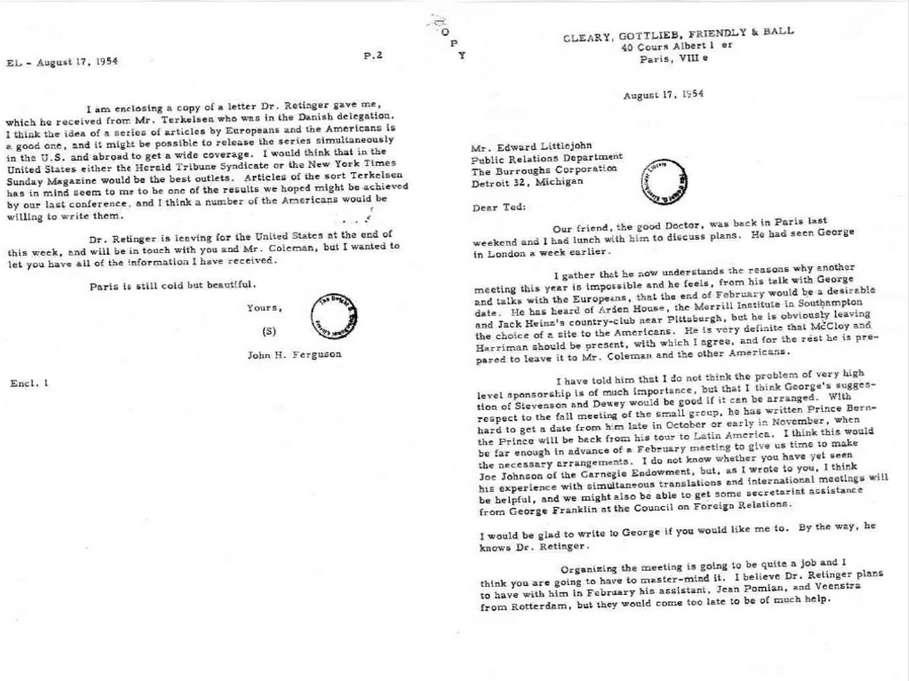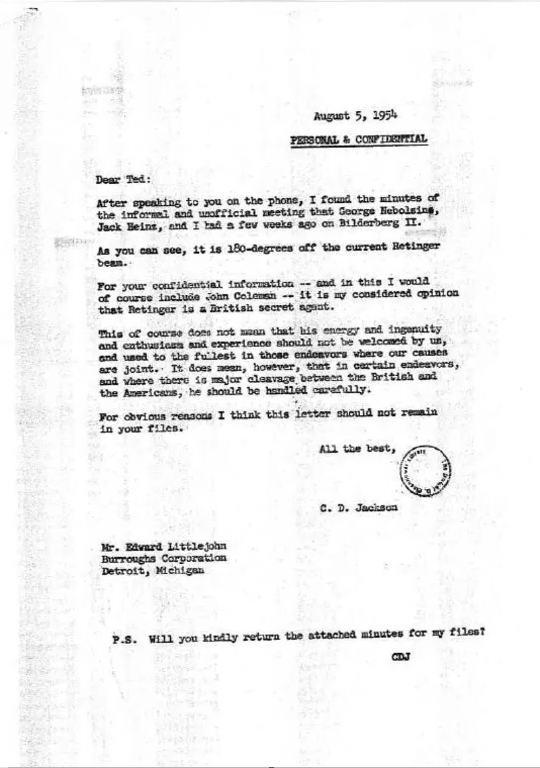Difference between revisions of "Edward Littlejohn"
(sections and desc upgrade) |
|||
| Line 1: | Line 1: | ||
{{person | {{person | ||
|alma_mater=Harvard University | |alma_mater=Harvard University | ||
| − | |description=Little known US organiser of the second and [[ | + | |description=Little known US organiser of the second and [[fourth Bilderberg]] meetings |
|image= | |image= | ||
|nationality=Australian, American | |nationality=Australian, American | ||
Revision as of 17:41, 27 September 2021
| Nationality | Australian, American |
|---|---|
| Alma mater | Harvard University |
Little known US organiser of the second and fourth Bilderberg meetings | |
Edward Littlejohn worked in the Burroughs Corporation of Detroit, which was a major American manufacturer of business equipment, where he was director of public relations [1], from 1951 as assistant director.[2] He was on the Committee for a National Trade Policy, Inc. under George Ball with many other early Bilderbergers.[3]
Background
Littlejohn is Australian by birth. He graduated from Harvard University in 1941.
Bilderberg
Edward Littlejohn was active in the early arrangements ('master minding') of the second and third Bilderberg Conferences, as this letter from fellow Bilderberger John Ferguson shows. (George= George Ball)

And this letter from general C. D. Jackson to Littlejohn, were the Americans believe Józef Retinger is a British 'secret agent'.
Events Participated in
| Event | Start | End | Location(s) | Description |
|---|---|---|---|---|
| Bilderberg/1955 March | 18 March 1955 | 20 March 1955 | France Barbizon | The second Bilderberg meeting, held in France. Just 42 guests, fewer than any other. |
| Bilderberg/1956 | 11 May 1956 | 13 May 1956 | Denmark Fredensborg | The 4th Bilderberg meeting, with 147 guests, in contrast to the generally smaller meetings of the 1950s. Has two Bilderberg meetings in the years before and after |
